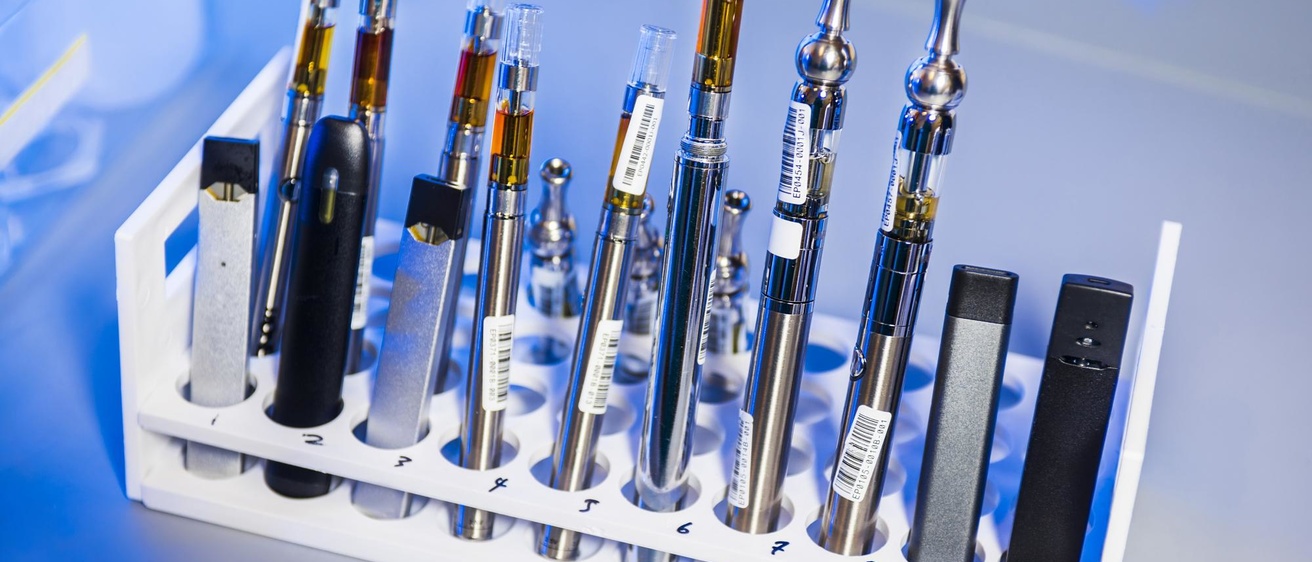State laws that regulate e-cigarette sales and usage may lower their use in states where those laws have been implemented, according to a new observational study from the University of Iowa published Jan. 31 by the journal JAMA Network Open.
E-cigarette use and vaping are popular among Americans, despite ongoing controversy about their public health effects. States first started passing laws to address e-cigarette use in 2010; by 2016, most states, territories, and the District of Columbia had some kind of regulation in place.
In the observational study, a research team led by Wei Bao, assistant professor of epidemiology in the University of Iowa College of Public Health, estimated the potential impact of five laws on e-cigarettes use by adults in the United States. Some of those five laws are implemented in many states, such as prohibitions of self-service displays of e-cigarettes at retail outlets, which was in force in 26 states. Others, such as age limitations or a tax, were in force in just a few states.
Bao and colleagues analyzed nationwide data from the U.S. Centers for Disease Control and Prevention (CDC)’s Behavioral Risk Factor Surveillance System (BRFSS). Each year, BRFSS researchers telephone a representative sample of U.S. adults and asks about their health-related risk behaviors and chronic health conditions. The researchers used data gathered from more than 890,000 adults who participated in 2016 and 2017 and provided information on e-cigarette use. Among them, 28,907 were using e-cigarettes at the time of the survey.
After linking e-cigarette use information to state laws based on the participants’ states of residence, the study found that differing laws had different impacts.
- People were 14% less likely to use e-cigarettes in states where laws prohibited their sale to persons under age 21. This is also the law that is in force in the fewest number of states—only California, Hawaii, and the District of Columbia have implemented age restrictions. However, a new rule from the U.S. Food and Drug Administration now makes it illegal to sell e-cigarettes to anyone under the age of 21 in the U.S.
- People were 11% less likely to use e-cigarettes in states in which the devices and their refills were taxed, laws that have been implemented in seven states.
- People were 10% less likely to use e-cigarettes in states where they are prohibited for use in indoor areas of private workplaces, restaurants, and bars. Ten states have this law in place.
- People were 10% less likely to use e-cigarettes in states where laws required retailers be licensed to sell them. This law is in place in 15 states.
Not every law was as successful, though. Regulations prohibiting self-service retail displays of e-cigarettes was not significantly associated with e-cigarette use. This is also the most commonly implemented law regarding e-cigarettes, in place in 26 states.
Bao cautions that the survey is observational and the data does not establish a definite cause-and-effect relationship between laws and reduced usage.
He says that the magnitude of associations between state laws and e-cigarette use was modest. However, because state laws are applied to the general population, the population-wide health effects of exposure to those state laws would be substantial.
He also says that the findings are generally consistent with the finding of previous studies for state laws regarding conventional cigarettes and conventional cigarette use.
Bao’s study, “Association of Electronic Cigarette Regulations with Electronic Cigarette Use Among Adults in the United States,” was co-authored by Yang Du, Buyun Liu, Guifeng Xu, Shuang Rong, Yangbo Sun, Yuxiao Wu, Linda G. Snetselaar, and Robert B. Wallace, all of the University of Iowa. It was published in the Jan. 31 issue of JAMA Network Open.
